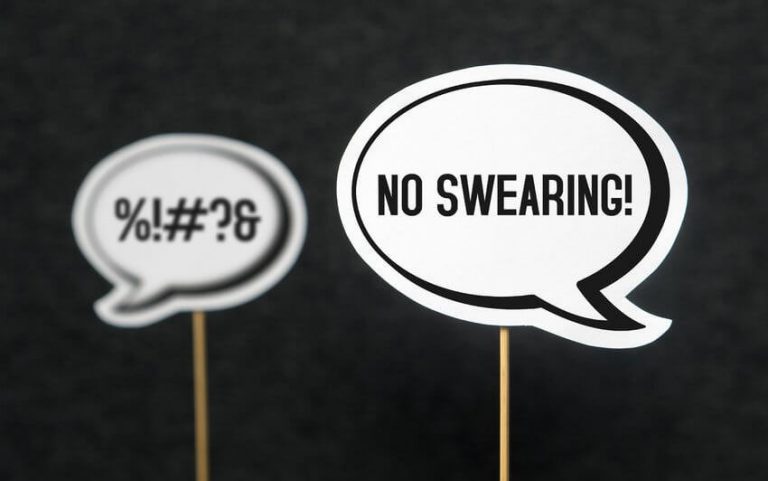Swearing in the workplace | No big deal?

Addressing the use of profanity in the workplace and determining whether it constitutes misconduct is a common concern for employers. In this blog, we’ll navigate the complexities of employees swearing in the workplace and specifically explore the question: ‘Is swearing gross misconduct?
Using profanity in the workplace is not necessarily unacceptable.
In some sectors, such as in construction or manufacturing environments, it may be more commonplace, but in an office, it may be considered more offensive.
If someone stubs their toe on the edge of their desk or burns them self while drinking their cup of coffee, you may hear the odd profanity and most people will just shrug it off.
But what about if an employee swears at their manager, or if during a heated exchange, a manager indulges in an expletive-laden tirade at their subordinate? These are the types of cases which an employer cannot just disregard.
What could happen if an employer swears at an employee?
It’s important to note that if the nature of the language is so serious that it justifies an employee resigning from their role, they could submit a claim at an Employment Tribunal for constructive dismissal.
In perhaps one of the most well-known cases, Horkulak v Cantor Fitzgerald, an employee took legal action against his employer, claiming that the conduct of the CEO, in particular his abusive and foul language, constituted a breach to the implied duty of trust and confidence. The employer argued that this type of language was ordinary in the workplace and was mainly due to being frustrated at the employee’s performance issues. The employee’s claim was upheld and he was awarded £900,000 in damages.
It’s a useful reminder that managers should not abuse their position of authority. If they are frustrated at their employee’s performance issues, they should deal with these concerns through their capability procedure. At times when tensions are high, they should take time to calm down before addressing the employee and always take care to curb their language.
What could happen if an employee swears at their manager?
In your disciplinary policy, you should provide clear examples of acts which will be considered gross misconduct. Generally, employers will include the use of excessive bad language on the company, prospect’s or client’s premises as an example of gross misconduct.
It’s important to remember that if you have a long-serving employee with an impeccable disciplinary record who has had one outburst which is very unlike them, you may need to investigate if there are any mitigating circumstances when you are deciding on the appropriate sanction. For example, are they under stress? Have they been provoked by someone?
Your bullying and harassment policy will also make it clear that the use of language which has the aim or effect of violating a person’s dignity or creates a hostile, degrading, humiliating or offensive environment for that individual will not be tolerated.
To get tailored advice for your workplace challenges, seek legal advice.
